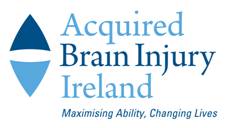
Case Study- ABI Ireland
(formerly known as The Peter Bradley Foundation)
What do they do?
They provide community based rehabilitation services for people with Acquired Brain Injury (ABI). Services consist of Assisted Living Services, Community Outreach, Day Services and Case Management.
Why did they sign up for this project?
ABI Ireland was enthusiastic about getting involved in the Work Positive project when it was first launched in 2008 by the Health & safety Authority (H.S.A.). We saw it as a good opportunity to identify potential psychosocial hazards and develop detailed risk assessments for stress in the organisation.
The project was launched with an introductory briefing session by the project Director, Patricia Murray, Organisational Psychologist of the H.S.A. We then got management buy-in for the project to ensure it’s successful implementation in the organisation. This was followed by information sessions delivered by the HSA for our participating staff. 56 staff were targeted and 45 questionnaires were completed (i.e. 80% return rate).
No of employees: ABI Ireland employ 185 staff and approximately 120 of these are employed as Rehabilitation Assistants working directly with ABI clients.
Did ABI specify a core group to be targeted?
Yes. Rehabilitation assistant staff as they are front line staff. Given the nature of their work, there are certain psychosocial hazards that are particular to this group such as lone working, dealing with challenging behaviour, dealing with families and doing shift work. Staff were split into two geographical groups according to operational regions, East/Northeast and Midlands/Southeast.
Results
Overall the results were very positive for our organisation which was good news. However, the results showed there is clearly still hazards which may lead to work-related stress and these hazards have been addressed and will continue to be addressed as the organisation develops further.
For all staff, the areas requiring some action were as follows:
- Relationship- building needed to be developed as strained relationships, where they may exist, can be potential hazards and the area of Control and Role needed some intervention for some.
For the separate regional areas, the results differed, showing that different cultures exist in different locations, despite people doing very similar jobs and thus even location and local culture influences results in terms of how staff perceive the working environment.
What did you do after getting results?
A focus group session was run with the East/Northeast staff, facilitated by an external consultant, (see ‘consultants to the project on this site) to give them the results and discuss the issue of ‘role’ as this was highlighted as ‘clear need for improvement’. Staff discussed what the term ‘role’ meant to them and then discussed recommendations for improvement in this area. Staff digressed into other areas when discussing role but all comments were captured with a view to collating feedback and determining any action that could be taken to address concerns raised.
Two more focus group sessions took place for the Midland/Southeast group in Mullingar and Wexford by the end of April.
Summary
ABI Ireland found the Work Positive project a worthwhile exercise as it gets staff thinking and talking about stress at work from a proactive risk management point of view rather than a reactive point of view. Frontline staff appreciated having their voices heard and their concerns listened to. They are aware that all of their concerns cannot necessarily be tackled in one go but will be addressed as part of a broader risk assessment process.
The Work Positive project has also provided benefits to management in that they have been provided with a clear picture of the potential psychosocial hazards facing their staff. This allows management to address the issues that have arisen using a systematic risk management approach. The focus groups have provided additional valuable information by allowing frontline staff to flesh out their concerns and provide recommendations for solutions.
ABI Ireland is a CARF (Commission for the Accreditation of Rehabilitation Services) accredited organisation. CARF is an internationally recognised accreditation body and being accredited ensures we maintain high quality control standards and strive for continuous improvement. The implementation of the Work Positive initiative in our organisation is in line with this concept of continuous improvement. It also demonstrates compliance with the Safety, Health & Welfare at Work Act 2005 in relation to risk assessing for psychosocial hazards, which is increasingly being recognised as an important factor in relation to protecting employee’s health, safety and wellbeing.
The real challenge for our organisation now is to address the concerns raised and provide feedback to staff in a timely fashion. It is recognised that not all concerns can be addressed immediately so action items will need to be prioritised based on risks and costs involved. With the current economic climate, implementing measures that involve significant costs will be more challenging than ever before.
What was a particular challenge?
The coordination of releasing staff for the initial information sessions and focus group sessions for short periods of time and over a large geographical area (due to the nature of our Rehabilitation Assistants work, releasing staff for short periods of 1-1.5 hours can be a challenge and be disruptive to staff rotas and client services)
What worked well ?
Staff appreciated being given the opportunity to get together and talk about potential stressors for them in their workplaces, giving them an opportunity to have their concerns listened to